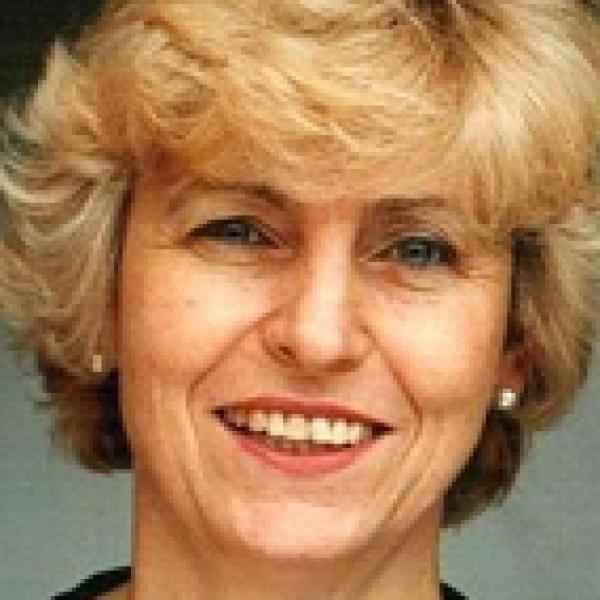Introduction
Dorota is establishing community foundations to provide small grants for youth-initiated projects. By doing so, she is empowering rural, underdeveloped communities in Poland and other parts of Central Europe.
The New Idea
Dorota aims to stimulate initiative and build civic awareness starting at a young age. She sees that small sums of money can, when strategically invested, yield enormous educational and societal benefits, particularly in underdeveloped areas where funds are scarce and a small sum goes a long way. In a region where the concept of individual and business philanthropy is poorly developed, Dorota is remarkably effective in involving the corporate sector, banks and municipalities in education and community development. She makes the process of building and distributing grant money a community's great and joyful challenge, engaging children and adults through festivals, exhibitions of achievements, and cross-border collaborations. In the process, she turns ordinary citizens into enthusiastic participants who feel a renewed sense of commitment to community, children, and education.
The Problem
The past 10 years of transition have generated harsh economic realities for many Poles. Communities of rural farmers are especially hard hit, as they struggle to compete with larger European Union producers. For farming communities in rural Poland, economic hardship means schools are poorly financed and funds earmarked for educational initiatives are scarce. The lack of economic and other resources breeds despair and many Poles see themselves as having little control over their futures.
In addition to economic factors, ideological factors relating to the formerly communist system dull individual initiative. The previous political structure actively discouraged independent thought and creativity. As almost fifty years of communist rule die hard, school children are still permitted little room to question their instructors and to engage them in constructive dialogue. In many communities and school systems, especially in rural areas of Poland, children are not encouraged to think and act in ways that support their dreams and help shape their individual identities. Instead, they frequently believe that it is impossible for them to change their situations. In frustration and confusion they often resort to drugs, crime and other destructive activities.
The Strategy
After years of piloting small community projects, such as helping farmers to build eco-tourism, empowering women leaders and encouraging integration across national boundaries, Dorota launched a community foundation in 1998. The community fund offers matching grants, for which children - individually or collectively - apply. Through these grants, Dorota promotes youth activities and educates young people on proposal writing, design and articulation of strategy, and follow through.
The projects funded to date include a myriad of youth-initiated ventures, ranging from ecological monitoring of river pollution to starting a folk music orchestra, to publishing school newsletters and building a sports stadium. In most cases, the funding covers only a portion of what is involved for the project, and project participants must be creative in using volunteer help and in securing supplementary funds or donations. Dorota looks for the creative use and combination of funds from other sources, including businesses and municipalities. For example, several grant recipients recently worked in tandem with a local municipality to restore and renew old, historic wells. In a project that was related to analysis of marketing strategies, children worked in coordination with local businesses to design and execute a project in which they monitored stores to determine the effectiveness of various marketing strategies, then provided useful and constructive feedback to store owners. Young people then distributed diplomas, which were proudly displayed by storeowners.
Dorota has been remarkably successful in attracting and using volunteers and in garnering funds. A year after starting her community foundation, fifty volunteers were actively participating, a number that grew to one hundred the following year. Dorota continues to ensure cooperation and investments from neighborhood municipalities, and has involved eighty councilmen in supporting the community fund. Dorota encourages creative and in-kind donations in addition to monetary contributions. One local bank, for example, offered free accounting services and marketing to Dorota's fund. Additionally, many individuals signal their commitment to education, youth, and civic participation through small donations.
To give children and adults a sense of community and achievement, Dorota now organizes an annual exhibition of youth venture work. This is a significant tool for public education and for dissemination of ideas, and Dorota has received ongoing media coverage for her successes. The anecdotal result is that the local post office eventually refused to deliver youth applications, as they objected to the high volume.
In 2001-2002, Dorota will begin cooperating with three other communities interested in launching a similar project. As a result of this pilot program she is planning to publish and spread manuals for business people and local governments. Additionally, she would like to launch a school for local leaders interested in implementing community foundations in other areas. Dorota hopes that the training workshops and conferences will generate revenue and will contribute to the continued financial sustainability of the fund.
The Person
Educated as an animal scientist, Dorota started a business breeding and selling horses and sheep on her farm in southeast Poland. In 1976, she started informally (and in 1986 registered) the association ZDANIE, which served as a club for dissidents and others interested in progressive social reform issues during the communist era. Now, Dorota serves as a councilwoman and on the Local Government Committee of the European Union's Council and the European Mountain Forum.
Education has always been one of Dorota's principal concerns. In recent years, she initiated a cross-border exchange with Czech and Polish children, who spend a week at each other's schools. Dorota is actively involved in the international educational programs for school students from Germany, France, Czech Republic, and the Slovak Republic. From 1995-1999, she brought together over 3000 children from the region annually to participate in environmental festivals and events.
